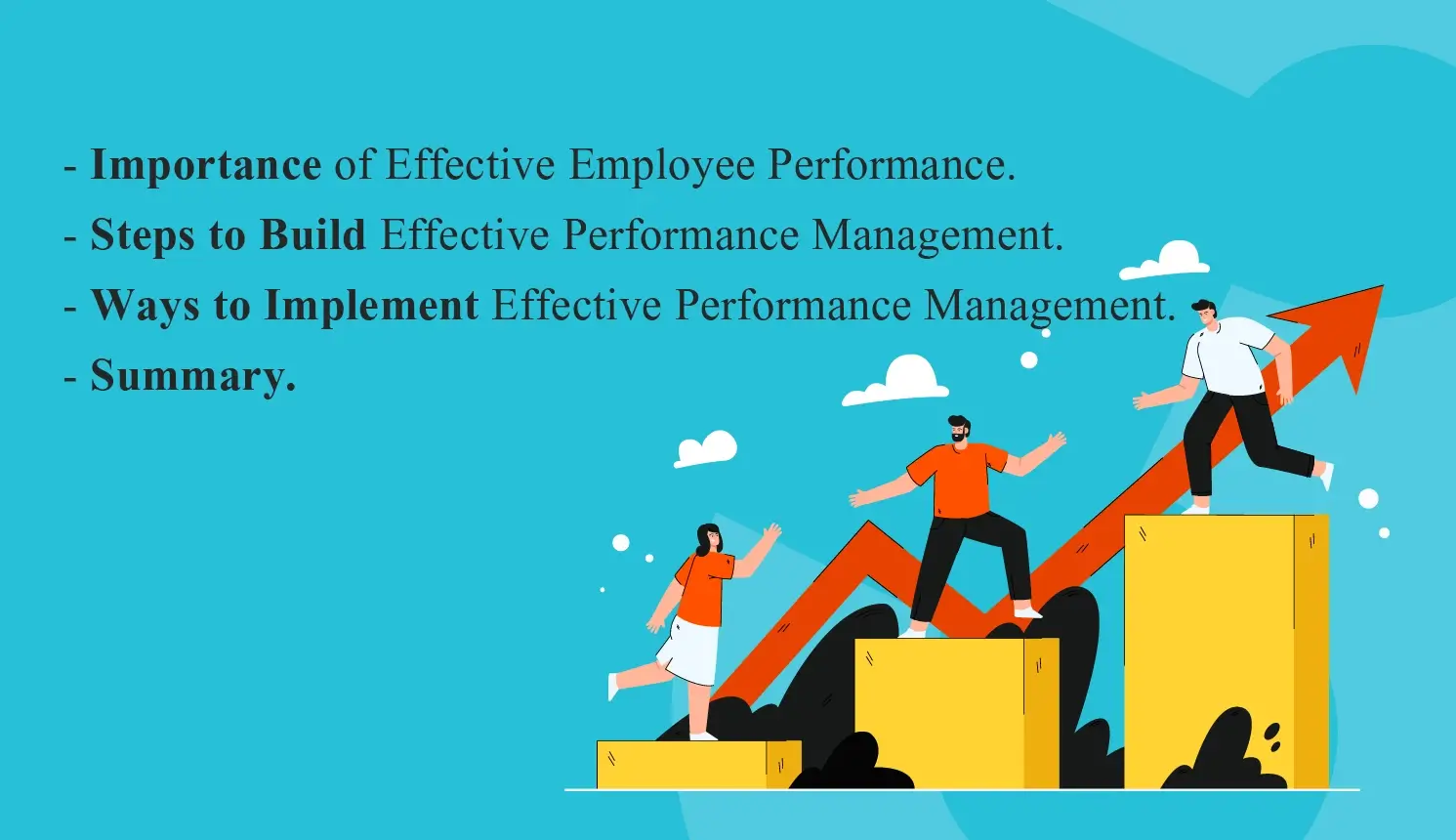Performance management is a method which helps employees of any organization to develop essential skills and to accomplish organizational goals. Managing the performance of employees is a vital skill required for all people managers. Performance management requires a panoramic approach.
Why do you need an effective employee performance management process:
Traditional performance management process engages employees on occasion, most typically at the end of the fiscal year. Infrequent review cycle like these doesn’t assess the true performance of employees.
A person spends one-third of their life at work. the relationship between employer and employee isn’t one-sided; it’s transactional. Employee happiness is good for business. This statement rings a whole lot of truth because today’s employees demand much more than just a career or money. So, an effective employee performance management process will help to
- Set clear goals and performance expectations.
- Identify short- and long-term goals.
- Provide Regular feedback.
- Helps to acquire company’s mission and vision.
- Aligns employee performance with organizational objectives.
Steps to build an effective performance management process.
Set goals!
Setting clear goals are productive approach when it comes to modern performance management process.
Align performance.
Align performance with periodic feedback that enables employees to perform better, helps businesses to revise goals, and align employee goals with business objectives.
Get a 360- degree feedback.
Modern performance reviews don’t just happen between employees and their managers, but also among other stakeholders like the teammates, colleagues from different company wings, clients, reports, and more.
Reward performance
Periodic employee feedback delivers accurate and timely feedback to employees, motivates and aligns them towards driving organizational strategy, tracks employee milestones, and establishes a good relationship between employee and manager.
Ways to convey effective performance management process.
Learn what motivates your employees:
A learner can be turned into an expert only through a combination of both positive and negative feedback. The same rule applies to a corporate employee. Moreover, what really motivates your employees to work harder? To get to know this question consider how your employee sees you as an employer. As a great leader you always should listen to your employees, take their feedback on board, and reward them appropriately in a timely manner.
Linking pay to performance:
A flexible and hybrid work environment is a modern factor which motivates employees and encourages them to stay connected with their current organization. However, bonuses are still strong motivators for so many employees.
Bonus-based compensation for employees’ efforts is a great way to retain them. Your employees may look for another opportunity if they feel like they are not compensated enough for their efforts.
Other Performance related benefits:
Apart from flexible work environment, good work-life balance, bonus-based compensation there are some other benefits you can give to your employees which includes:
- Opportunities to work from home in Certain conditions
- After work social activities and events.
- Gym and wellness memberships and programs.
- Paid sick leave.
Learning and development programs:
When it comes to effective employee performance management, allowing employees to learn new tactics and acquire more knowledge is equally important as reviewing their past performance. Learning and development strategy programs should be integrated with overall performance strategy. You can consider giving PDPs (Personal Development plans) to every individual employee. In general PDPs include Required skills to catch deadline on time, Goals to achieve quarterly, Actions to take to build those skills, A brief overview of employee’s previous experience, progression of employee.
Summary:
Make sure that your performance management process should always work in a loop of feedback through collecting feedback from employees. It will help to improve performance management strategies which are already in place. Always make sure what perks motivates your employees to give their best efforts. In that way performance management system will help to let to know which employee is improving, which employee performance is declining and why.
